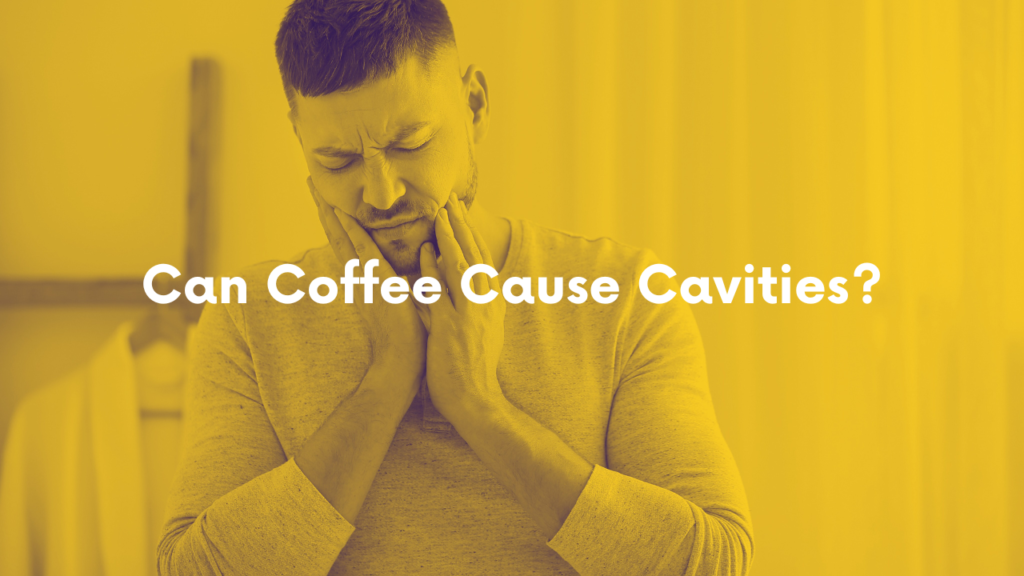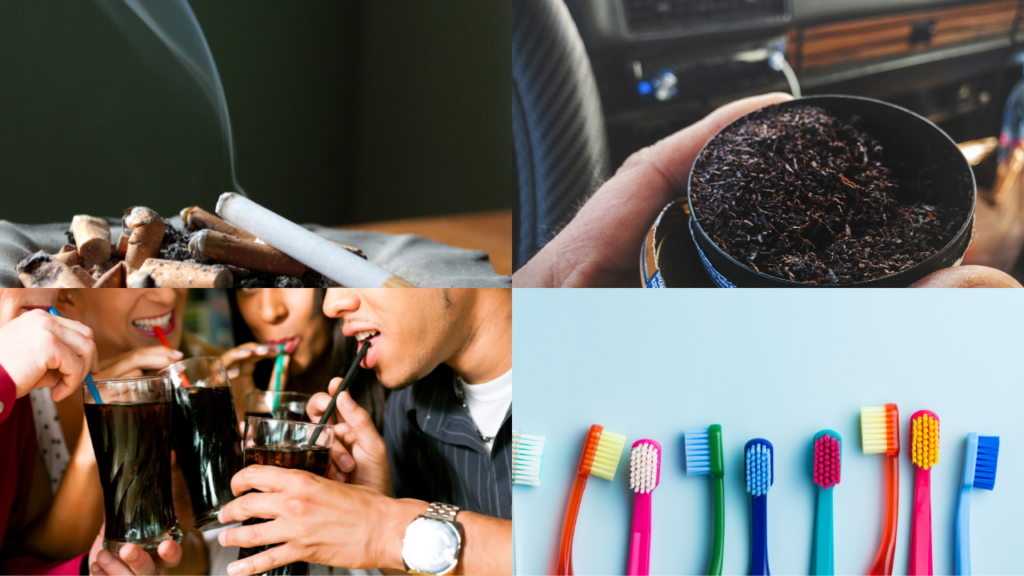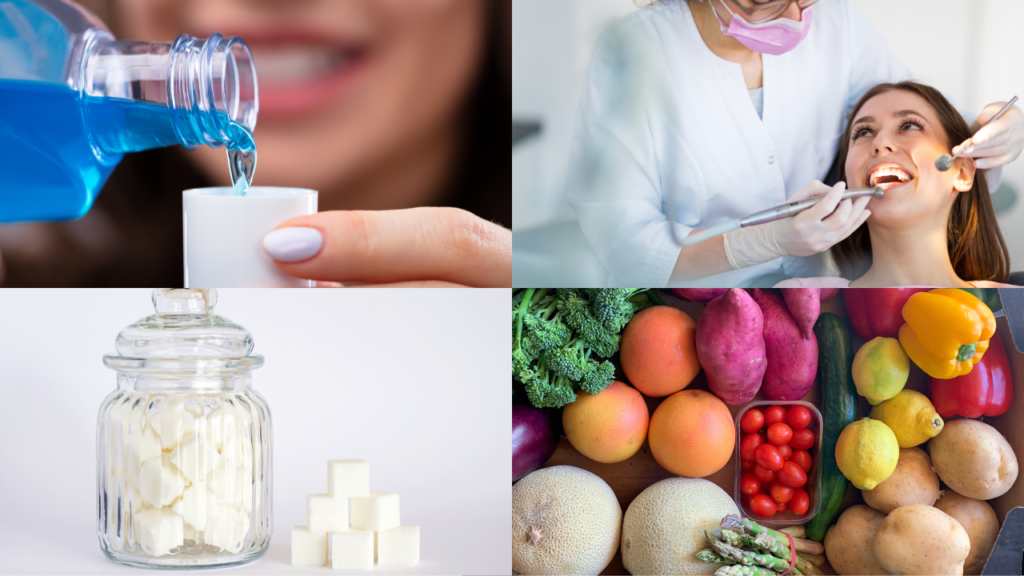
Did you know that coffee can cause cavities? It’s true! Coffee is a major culprit when it comes to cavities and tooth decay. But don’t worry – there are ways to enjoy your morning cup of joe without putting your teeth at risk.
In this blog post, we’ll tell you everything you need to know about the link between coffee and cavities. We’ll also give you some tips for keeping your teeth healthy even if you can’t resist a cup of coffee every morning.
So read on to learn more!
Can Coffee Cause Cavities?
Can coffee cause cavities? It’s a valid question, and the answer is yes – coffee can definitely cause cavities. Coffee is high in sugar and acidic content, both of which can erode your teeth and lead to cavities.
That doesn’t mean you have to give up coffee altogether. Just be sure to drink it in moderation and brush your teeth regularly. Also, make sure to floss daily – flossing removes plaque and bacteria from between your teeth, where cavities tend to form.
If you’re really worried about cavities, you may want to consider switching to decaf coffee. Decaf coffee is lower in sugar and acid than regular coffee, so it’s a bit gentler on your teeth.
How Coffee Causes Cavities
Coffee is a popular drink that is enjoyed by many people around the world. While coffee has many benefits, it can also cause cavities. The caffeine in coffee can dry out the mouth, which can lead to cavities. Coffee can also stain your teeth, making them more susceptible to cavities.
Can Decaf Coffee Cause Cavities?

While decaf coffee does not have the same level of caffeine as regular coffee, it can still cause cavities. The decaffeination process can remove some of the beneficial antioxidants in coffee. This can lead to a dryer mouth and cavities.
Can Coffee Actually Help With Cavities?
While coffee can stain your teeth and contribute to cavities, it’s not all bad! Coffee also contains compounds that can help fight cavities.
It’s important to remember that coffee is an acidic drink and can erode your teeth over time. However, coffee also contains compounds like polyphenols and chlorogenic acid that can help fight cavities. So, if you’re going to drink coffee, make sure to brush your teeth afterward and use fluoridated toothpaste!
Reasons Why Coffee Can Cause Cavities

Coffee can erode your teeth over time
Coffee can erode your teeth over time because it is a acidic beverage. The acids in coffee can wear away your tooth enamel, which is the outer layer of your teeth. This can leave your teeth more susceptible to cavities and other dental problems.
You can minimize the damage that coffee does to your teeth by drinking it with a straw, rinsing your mouth with water after drinking coffee, and brushing your teeth regularly.
Caffeine in coffee can dry out the mouth
Caffeine is a stimulant that is found in coffee. It can dry out your mouth because it is a diuretic, meaning it causes you to urinate more frequently. This can lead to dehydration, which can dry out your mouth. Additionally, caffeine can also irritate the lining of your mouth, leading to further dryness.
Coffee can also stain your teeth
Caffeine is a natural diuretic, meaning it makes you urinate more frequently. When you drink caffeinated coffee, the caffeine enters your bloodstream and travels to your kidneys. The caffeine tells your kidneys to get rid of more water as urine, which causes dehydration. This can cause dry mouth, which can make teeth more susceptible to staining because saliva helps protect teeth from bacteria and acids that cause tooth decay.
Coffee contains two compounds that can stain teeth: tannins and melanoidins. Tannins are pigments that give coffee its brown color and make it bitter. Melanoidins are a type of compound that’s formed when sugars and proteins interact during the roasting process. These compounds attach to your teeth’s enamel, making them yellow or brown over time.
What Can Cause Cavities To Keep Coming Back?

Eating sugary foods
Sugar is one of the main culprits when it comes to cavities. When you eat foods high in sugar, the bacteria in your mouth feeds on the sugar and produces acids. These acids can then attack your teeth and cause cavities. The more sugar you eat, the more cavities you’re likely to get.
Another reason why eating sugary foods can cause cavities to keep coming back is because sugar can also weaken your tooth enamel. Enamel is the hard outer layer of your teeth that protects them from cavities and decay. When enamel is weakened, it becomes more susceptible to cavities and decay. So, if you’re constantly eating sugary foods, your enamel will become weaker and you’ll be more likely to get cavities.
Drinking soda or other sugary drinks
When you drink soda or other sugary drinks, you’re feeding the bacteria in your mouth and increasing your risk of cavities. Sugar is the main ingredient in most sodas and other sugary drinks, so it’s no surprise that they’re bad for your teeth.
Sugary drinks can also weaken your tooth enamel, just like sugary foods can. When your enamel is weak, it’s more susceptible to cavities and decay. So, if you’re drinking soda or other sugary drinks on a regular basis, you’re putting yourself at a greater risk of cavities.
Not brushing teeth properly
One of the main reasons why not brushing teeth properly can cause cavities to keep coming back is because if you don’t brush your teeth correctly, you’re not getting all of the sugar and bacteria off of your teeth. If left on your teeth, sugar and bacteria can continue to feast on your teeth and produce acids that can cause cavities.
Another reason why not brushing your teeth properly can lead to cavities is because if you don’t brush long enough or use the right amount of pressure, you’re not removing all of the plaque and bacteria from your teeth. Plaque is a sticky film that forms on your teeth when sugar and bacteria interact. If plaque isn’t removed regularly with brushing and flossing, it can harden into tartar. Tartar is a hard substance that can only be removed with a professional cleaning from your dentist.
If plaque and tartar aren’t removed, they can cause cavities, gum disease, and other oral health problems. So, it’s important to brush your teeth for at least two minutes twice a day using the right amount of pressure. You should also floss once a day to remove any plaque or bacteria from in between your teeth.
Not flossing regularly
If you don’t floss regularly, you’re not removing all of the plaque and bacteria from your teeth. Plaque is a sticky film that forms on your teeth when sugar and bacteria interact. If plaque isn’t removed regularly with brushing and flossing, it can harden into tartar. Tartar is a hard substance that can only be removed with a professional cleaning from your dentist.
Smoking cigarettes
Smoking cigarettes can cause cavities to keep coming back because it dries out your mouth, leading to a decrease in saliva. Saliva is important for fighting cavities and neutralizing acids produced by plaque bacteria. Smoking also discolors your teeth, making them more susceptible to cavities. In addition, coffee, which many smokers drink, can stain teeth.
Chewing tobacco
Chewing tobacco can cause cavities to keep coming back for a few reasons. First, chewing tobacco causes your mouth to dry out, leading to a decrease in saliva. Saliva is important for fighting cavities and neutralizing acids produced by plaque bacteria. Second, chewing tobacco discolors your teeth, making them more susceptible to cavities.
Should You Drink Coffee While Having Cavities?
There is some debate over whether or not you should drink coffee while you have cavities. Some people believe that the caffeine in coffee can make your cavities worse, while others believe that it can help to clean your teeth and remove any plaque or bacteria that may be causing your cavities. Ultimately, it is up to you and your dentist to decide whether or not drinking coffee is right for you.
Tips To Avoid Cavities

Here are a few tips on how you can prevent cavities:
- Avoid sugary drinks and snacks
- Brush your teeth twice a day
- Floss at least once a day
- Use mouthwash regularly
- Visit your dentist for regular checkups and cleanings
- Quit smoking or chewing tobacco
- Limit alcohol consumption
- Eat a balanced diet with plenty of fruits, vegetables, and whole grains
Taking care of your oral health is an important part of overall wellness. By following these tips, you can keep your smile
Can Coffee Help With Cavities: The Verdict
Yes, coffee can cause cavities. Coffee is a diuretic and causes dehydration. Dehydration leads to dry mouth, which in turn creates an environment where cavity-causing bacteria can thrive.
So if you’re looking for ways to reduce your risk of cavities, consider cutting back on your coffee intake or drinking more water to stay hydrated.
Check out our blog on whether coffee can cause gallbladder pain here.